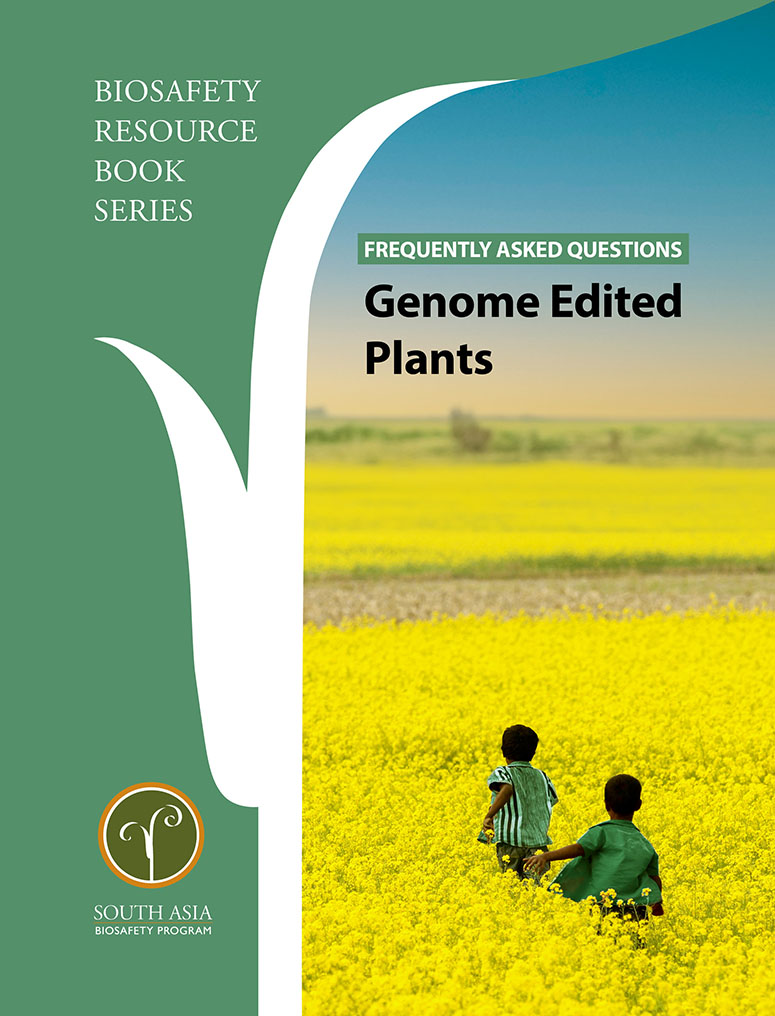Frequently Asked Questions: Genome Edited Plants
Islam, A. and Ahuja, V. | April 4, 2024
Genome editing, also called gene editing, is one of the latest developments in crop improvement technologies. Genome editing is being applied to crops to introduce traits, such as withstanding climatic factors, resistance to pathogens, improved nutritional value, and even reduced wastage in the post-harvest stage in multiple crops. This technology is more precise and efficient than conventional breeding and, hence, can reduce the time needed to develop new plant varieties. Extensive research efforts are underway for over 70 crops in about 60 countries. Genome edited plants are already moving beyond the laboratory, and its products, such as high GABA tomato, high oleic soybean, milder flavored mustard, etc., are already on the market in Japan and the USA.
The National Agricultural Policy 2018 of Bangladesh supports the adoption of modern techniques, including biotechnology, for the development of traits, including biotic and abiotic stress tolerance and nutritious crop varieties, to ensure food and nutritional security. Many laboratories in Bangladesh have already initiated research to develop genome edited plants. Recognizing the potential of genome edited plants for crop improvement, the Ministry of Agriculture, Government of the People’s Republic of Bangladesh, in December 2023, approved the “Standard Operating Procedures for Research and Release of Genome Edited Plants of Categories of SDN-1 and SDN-2 in Bangladesh” so that the farmers and consumers can benefit from these novel technologies.
The third installment in the Biosafety Resource Book Series published by the South Asia Biosafety Program, this booklet provides information about genome edited plants in a simple language, so readers may better understand the science, applications, and policies at the global and national levels.
Islam, A. and Ahuja, V. (2024) Frequently Asked Questions: Genome Edited Plants, South Asia Biosafety Program (SABP), Agriculture & Food Systems Institute (AFSI), Washington, DC.
ISBN: 978-984-35-6427-6

